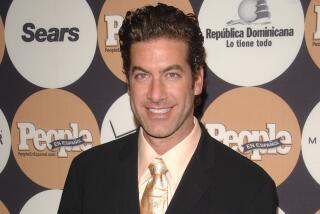RCA Goes to the Archives
The major recording companies are increasingly turning to their archives for classical compact disc product. In an era rather short of salable superstars, the lure of the past becomes particularly powerful. Then, too it’s easier and cheaper to bring back a golden oldie than to start from scratch.
RCA, for instance, in their mid-price Gold Seal series, continues to regale us with its two abiding instrumental legends: Jascha Heifetz and Artur Rubinstein.
On the Heifetz front, there is a reprise of the first recording ever made of the Violin Concerto written for him in 1949 by William Walton (RCA CD 7966). For sheer intensity and technical mastery there remains no contending version. Nor, for that matter, can others compete with Heifetz in projecting sweetness untinged by sentimentality, which applies as well to the composer’s conducting of the Philharmonia Orchestra.
Admirers of the Elgar Violin Concerto, with which the Walton is generously coupled here, might find Heifetz’s way with it overbearing. But to one who wishes Elgar would get on with it, there are rewards in the brisk, clarifying approach of the soloist and his partners, the London Symphony under Malcolm Sargent.
Heifetz is the name that immediately comes to mind when considering the sizable body of 20th-Century music which not only owes its existence to a certain interpreter, but where the interpreter is what the music is about.
Four such compositions, all dedicated to the violinist, are collected on a single CD (RCA 7963): the film-score-based Violin Concerto by Erich Wolfgang Korngold; the Bartok-based Concerto of Miklos Rozsa and the same composer’s “Tema con variazioni,” in which Heifetz is lovingly partnered by cellist Gregor Piatigorsky, and the Bizet-based “Carmen” Fantasy of Franz Waxman. Listen and enjoy--and realize why this material falls flat in hands other than Heifetz’s: he neither analyzed it, nor he did he condescend to it.
Among the soloist’s collaborators here, conductor Alfred Wallenstein and a not-yet-respected Los Angeles Philharmonic should be singled out for their solid, finely-detailed backing in the Korngold.
Heifetz, Rubinstein and Piatigorsky never quite convinced us that they conformed to the chamber music ideals of “listening to each other” or “thinking as one.” But they gave us some unmatchable thrills anyway, over 40 nonstop minutes of them in their fast-paced 1950 edition of the Tchaikovsky A-minor Trio, a composition which can seem just short of interminable in dawdlingly “sympathetic” hands.
Again, the CD (7768) is generously packed, here by the inclusion of Mendelssohn’s Trio in D minor, which, however, is brutally cuffed about by Heifetz’s head-on approach while, at the other end, Piatigorsky lumbers. The pianist’s attempts at mediation are unsuccessful.
RCA’s souvenirs of the 1960s Heifetz-Piatigorsky concerts in Los Angeles are, likewise, not the stuff of golden memories. Dvorak’s Piano Quintet, Opus 81, with Brahms’ G-major String Sextet (on CD 7965), and the program featuring Schubert’s C-major String Quintet (CD 7964) find Heifetz in most tensely clipped-phrase, hectoring form. His colleagues, among them pianist Jacob Lateiner, violist William Primrose and Piatigorsky, are unable to apply the brakes to the Heifetz train which, if not quite runaway, moves too fast for the composers’ comfort and safety.
Among the 1960s ventures of another ad hoc, less than perfectly cohesive ensemble--Rubinstein, violinist Henryk Szeryng and cellist Pierre Fournier--pride of place goes to their powerful, sprawl-minimizing effort in behalf of Schumann’s lyrically inspired but mechanically awkward Trio in D minor. But the companion piece (on CD 6262), Schubert’s Piano Trio in B-flat, is undermined by Fournier’s labored, raspy playing.
It should be noted that in each of these CDs, whether derived from 1940s-’50s monophonic material or 1960s stereo, the RCA remasterings are superb.
More to Read
The biggest entertainment stories
Get our big stories about Hollywood, film, television, music, arts, culture and more right in your inbox as soon as they publish.
You may occasionally receive promotional content from the Los Angeles Times.










